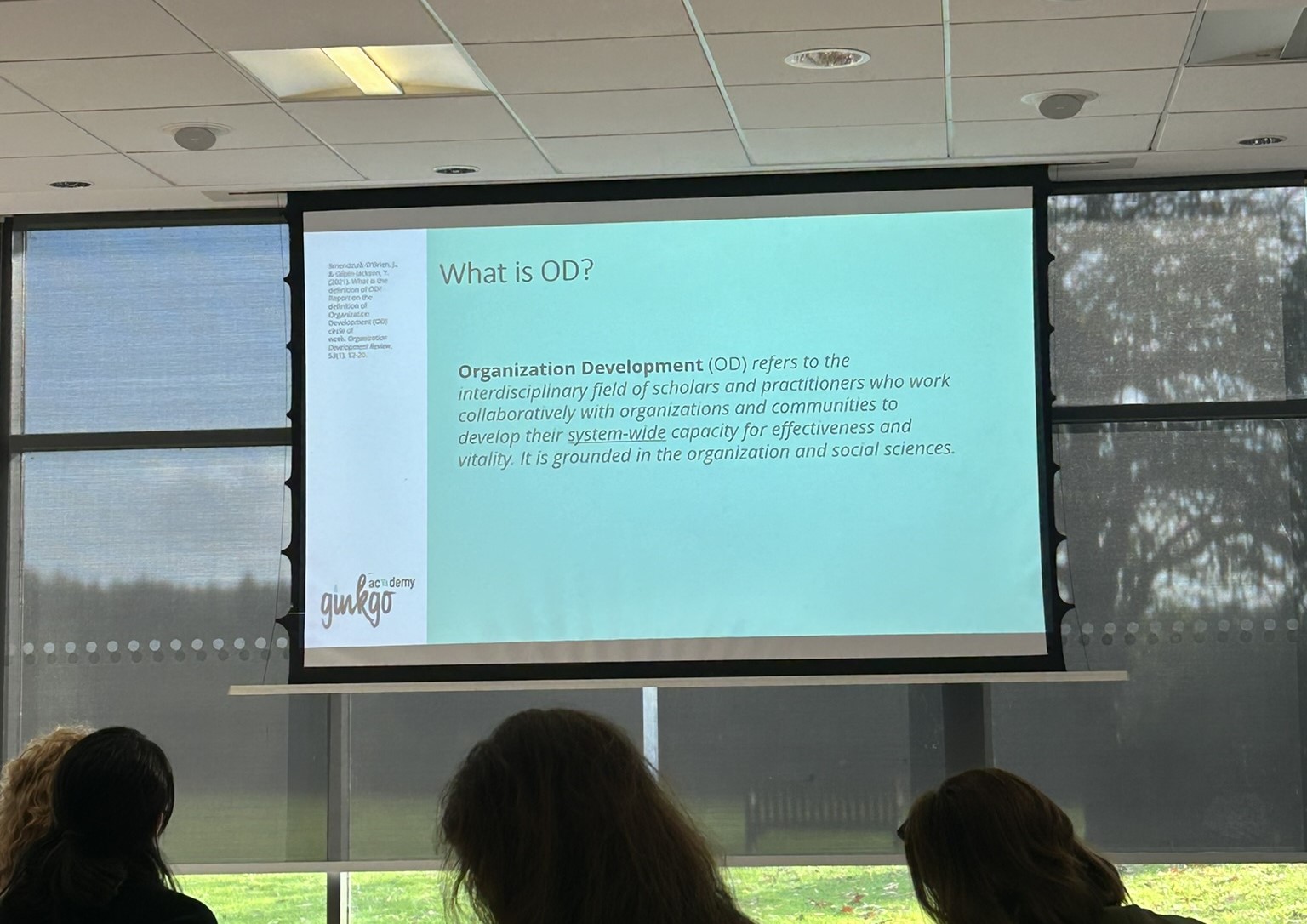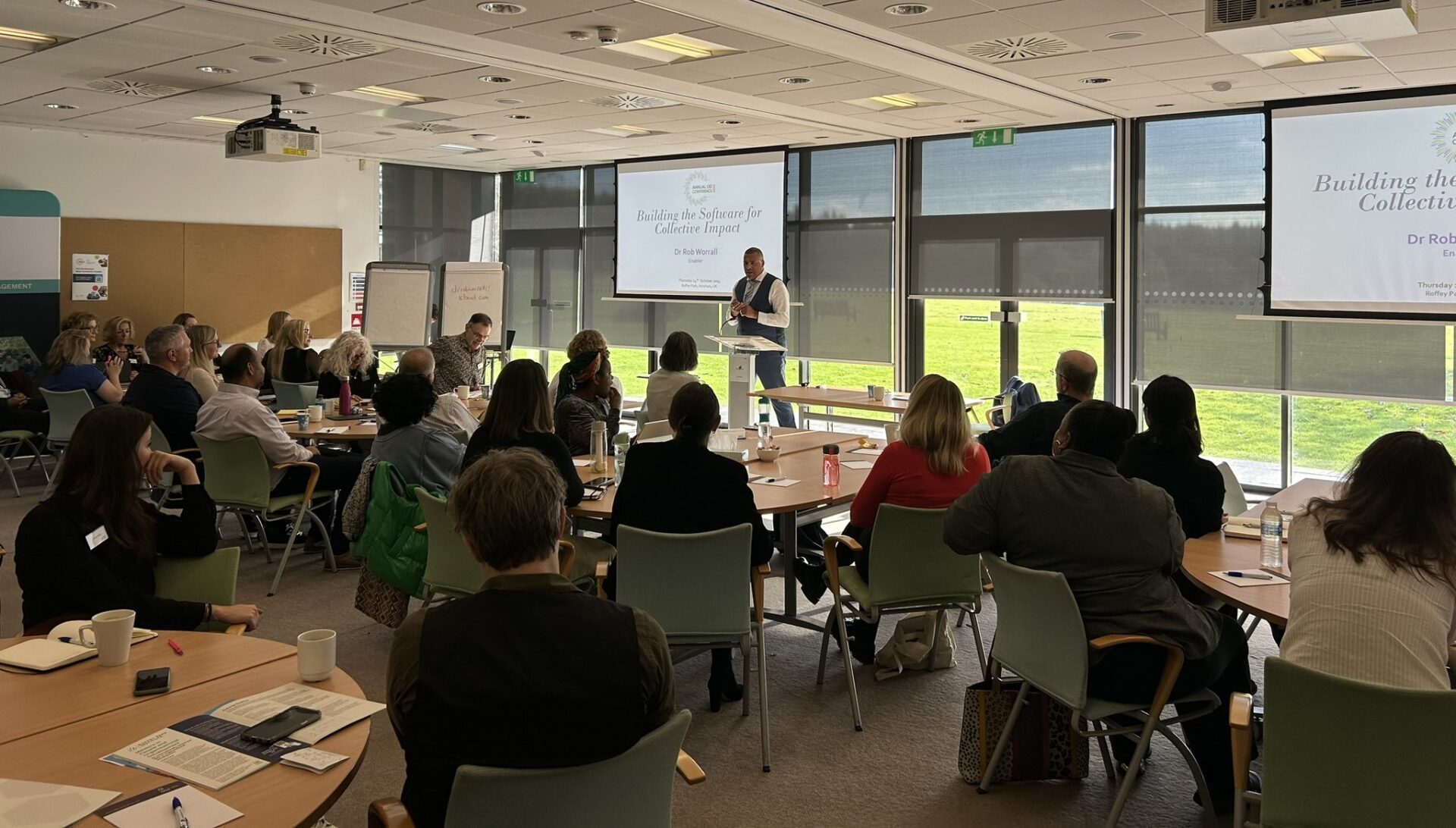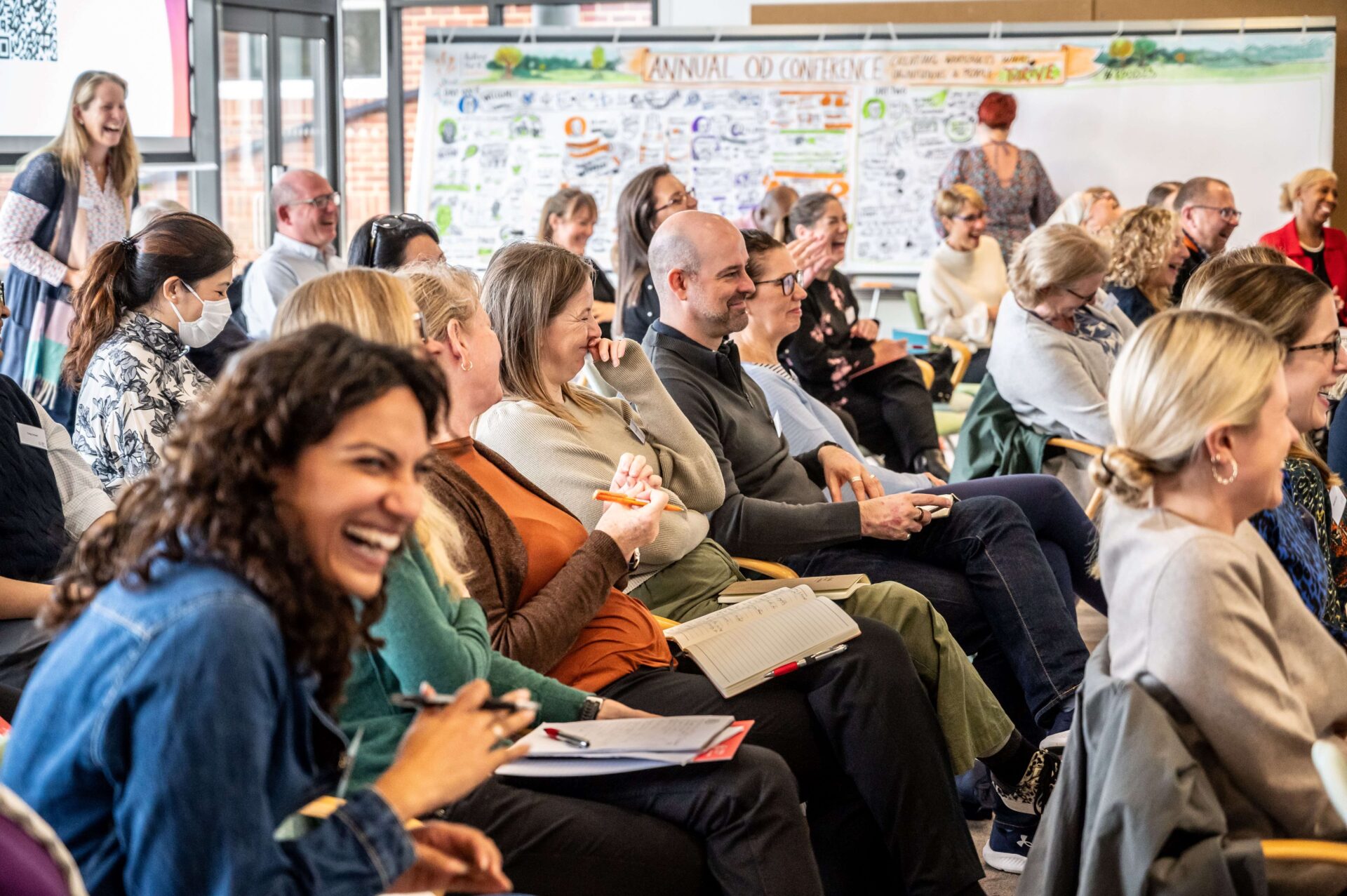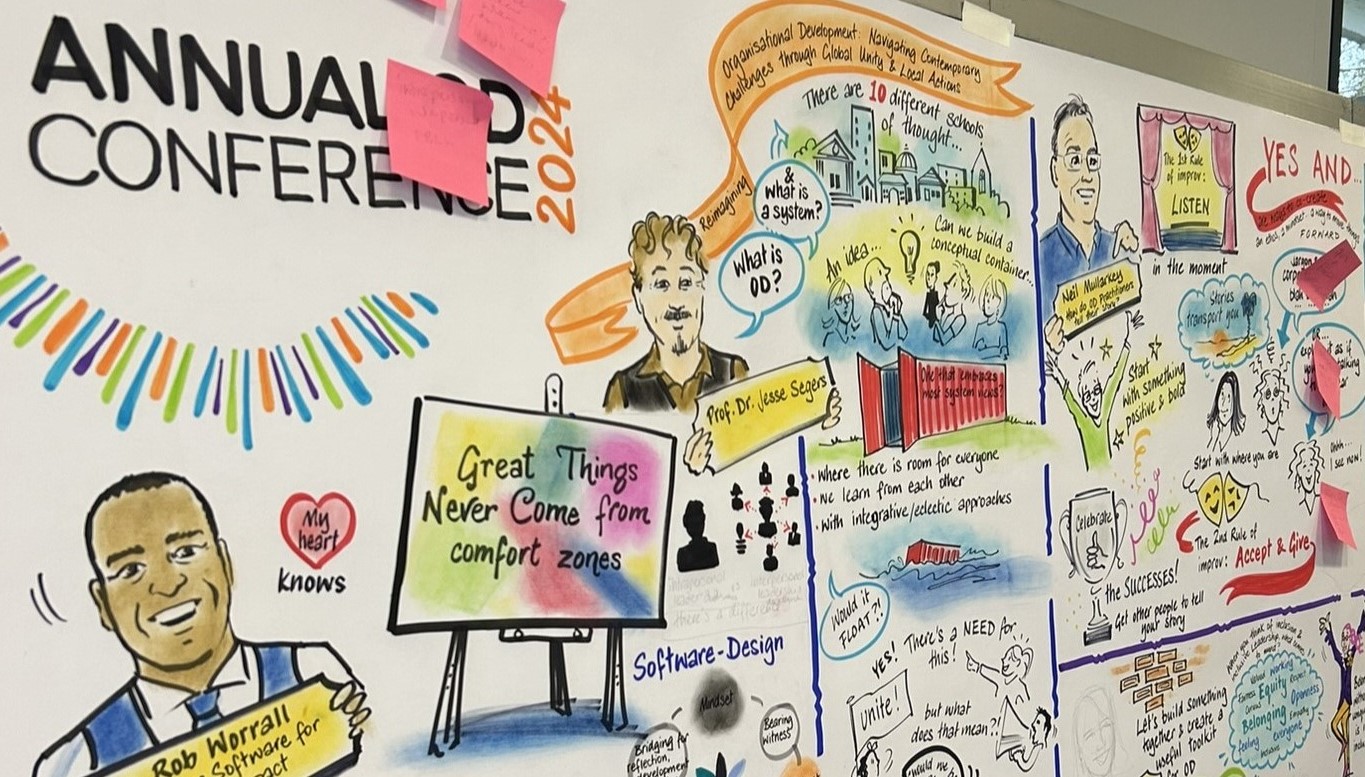What is Organisation Development? Wikipedia tells us that OD is… ‘the study and implementation of practices, systems, and techniques that affect organisational change.’ This seems reasonable but in recently attending Roffey Park Institute’s annual Organisation Development (OD) Conference, I think there are actually two possible responses to this question, neither being the above. One, that no one can agree on a concrete definition and two, that it is entirely relevant to one’s own context and how one applies OD in their own practice.
Although I have listened to, conversed with and written about those in the Organisational Development space, I am not in that space myself. One of the most common things that I heard during the conference was, what is OD? It is also something that I’ve heard a lot over the last couple of years. I wondered if the people who practice OD daily do not know what it is, then what chance do I have? Over the next two days, I realised the reason that there was no agreed concrete definition of OD is that it is different for everyone depending on how it is applied in their practice.
What is OD?
Lead speaker Ku’ulani Keohokalole began her talk by explaining that when she first became Director of Organisational Development at a previous workplace, she had to ask, ‘What is OD?’. This is a very common theme that I hear often, that people either enter the OD space unsure of what it means or that they are already practicing OD without knowing there was a label for it. Now, after the experience of working in OD, Ku’ulani defines it as ‘planned change but with intuitive sense added to it.’ This is powerful to Ku’ulani’s work as she explained that being an indigenous native Hawaiian, intuition is an incredibly important part of her culture including in her work practice.
Whereas fellow lead speaker, Jesse Segers, defined OD as ‘the interdisciplinary field of scholars and practitioners who work collaboratively with organisations and communities to develop their system-wide capacity for effectiveness and vitality. It is grounded in the organisation and social sciences.’ Jesse’s definition could well be rooted in his expertise in complexity thinking and social constructivism. These are two examples of differing definitions of OD but both wholly correct and relevant to the practitioner’s contexts.

Is OD as complex as it seems?
Throughout the conference, many different models, schools of thought, definitions of systems and various theories were mentioned – none more so than the phrase ‘complex adaptive systems.’ But then from hearing the examples of the speakers and the audiences’ experiences and practice-based examples, Organisation Development doesn’t seem as complex as what it can be made out to be.
Lead speaker, Neil Mullarkey, asked the guests to write down a project or something that the guests had done recently in their workplace. He then told them to write it down again as if they were explaining it to a ten-year-old. A collective chuckle broke out when the guests realised that, by far from underplaying the importance of what they do, most stories can be told in much simpler ways and there are many benefits of doing so. Here is an example from one of the conference attendees:
- Recent project – Supporting the faculty of arts and social sciences with a review of their professional services function.
- De-jargoned version – Helping some people to help teachers be better at their jobs by reorganising themselves.
Of course, some things and some projects need to be fully explained using more complex language but most of the time using simpler language can be really effective. From the outside, the field of OD can sometimes seem like an exclusive club and often this is partly because of the jargon-fuelled language that organisations and therefore practitioners use.

It is about people
One of the problems that OD faces is that it is not as accessible and inclusive as it could be and this could be because of the way OD is interpreted from the outside world. From what I’ve digested, I interpret OD to be about people and complexity and systems to mean that people, in whatever type of workplace, are unpredictable and that OD is helping businesses by effectively working with their people to encourage positive change. This is broad and generic but if you picked someone off the street and told them that is what OD is, they could understand.
OD is fun
One of my key takeaways from the conference is that OD practitioners are trying to help the working landscape for the better and that it is not easy when the environment is always changing. The collective enthusiasm the audience had for learning from the speakers and each other was great – there is a real feeling that OD is always evolving and that it is fun, that helping people is fun. I understand that the world at times can be an uncertain place and organisations and people can go through really difficult periods; in no way do I underappreciate that often OD is applied during tough times but successfully implemented change can benefit a lot of people.

Final reflections
OD can be accessible and inclusive; it doesn’t have to be a theory, concept and jargon-based space practiced by what seems an exclusive group. There seems to be work needed to help alleviate the fear of OD and break down parts into accessible and everyday language, which might allow for a higher demand for people to want to enter the space.
An OD practitioner once told me that if we are to save the world, we must start with what is around us. Therefore, recognising this year’s conference theme of thinking global, acting local, that by directly influencing those around us, uniting by learning and avoiding standardisation that step-by-step OD might actually help save the world.





